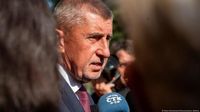Billionaire Andrej Babis has staged a dramatic political comeback in the Czech Republic, leading his populist ANO party to a decisive victory in the country’s parliamentary elections held on October 3 and 4, 2025. With nearly all ballots counted, ANO captured roughly 35 percent of the vote—its strongest performance since bursting onto the national scene in 2013—while the ruling centre-right Spolu (Together) alliance, led by Prime Minister Petr Fiala, trailed with just over 23 percent, according to the Czech Statistical Office and reporting from NPR and The New York Times.
The scale of Babis’s win is historic. Jubilant at his party’s headquarters, Babis told supporters, “I am thrilled that we convinced people that it is only the ANO movement that has a clear vision for the future of our country.” He called the result “the peak of my political career, absolutely,” as reported by The New York Times. Despite this triumph, ANO fell short of a parliamentary majority, securing 80 seats in the 200-member lower house. The path to forming a government now hinges on coalition-building, a process likely to be fraught with political calculation and uncertainty.
Turnout reached 68 percent—the highest since 1998—with more than 4,400 candidates and 26 parties vying for seats. The election capped off a bitter campaign season, marked by personal insults between Babis and Fiala and even a physical altercation in September, when Babis was struck on the head with a crutch by a pensioner, briefly landing him in hospital, according to The Economist.
Babis, 71, is no stranger to controversy or political reinvention. Once a centrist who led the country from 2017 to 2021, he has shifted sharply to the right in recent years, styling himself a eurosceptic and admirer of former U.S. President Donald Trump. During the campaign, he handed out “Strong Czechia” baseball caps reminiscent of Trump’s “Make America Great Again” slogan. Babis has also forged close ties with Hungarian Prime Minister Viktor Orban and Slovak Prime Minister Robert Fico, both of whom have challenged EU sanctions on Russia and refused military aid to Ukraine.
The election’s outcome could have significant consequences for both Ukraine and the European Union. Under Fiala, the Czech Republic has been a steadfast supporter of Kyiv, donating arms—including heavy weapons—and spearheading an initiative to acquire artillery shells for Ukraine. Babis, however, has promised to end Prague’s arms procurement initiative for Ukraine, arguing that military aid should be managed directly by NATO and the EU. “We don’t like it,” Babis said of the Czech-led ammunition initiative, as reported by NPR. “We have a different view of it.”
Observers fear that Babis’s victory could shift the Czech Republic’s foreign policy, aligning it more closely with Hungary and Slovakia, both of which have taken a pro-Russian stance within the EU. As DW noted, “ANO’s victory in the Chamber of Deputies vote could spell trouble for Ukraine,” potentially weakening the Western alliance’s united front against Moscow. The Motorists party, another potential coalition partner for Babis, is backed by former EU-skeptic President Václav Klaus and shares ANO’s critical views on EU climate policies and migration.
Despite his party’s commanding lead, Babis faces a complicated road to forming a government. He has stated his preference for a one-party cabinet, but without a majority, he will need at least tacit support from other parties to win a parliamentary confidence vote. Early signs point to possible deals with the far-right Freedom and Direct Democracy (SPD) party, which won 8 percent of the vote, and the Motorists, who took 6.8 percent. SPD deputy leader Radim Fiala told Czech television, “We went into the election with the aim of ending the government of Petr Fiala and support even for a minority cabinet of ANO is important for us and it would meet the target we had for this election.”
Still, Babis has distanced himself from the most extreme parties late in the campaign, insisting that ANO is “clearly pro-European and pro-NATO” even as some of his potential partners, like the Freedom party, advocate for leaving both the EU and NATO and expelling Ukrainian refugees. The far-left Stacilo! movement, led by Communists, failed to clear the 5 percent threshold to enter parliament, a blow to pro-Russian fringe elements.
President Petr Pavel, who holds the constitutional power to appoint the next prime minister, is expected to open coalition talks with party leaders. Pavel has previously warned he would block the most extreme parties from entering government, particularly when a left-wing movement initially appeared poised to give Communists a direct role in the Czech cabinet for the first time since the Velvet Revolution of 1989. According to The New York Times, Babis must also address conflict-of-interest laws related to his sprawling agribusiness empire before taking office. He told reporters he would “show a solution” to President Pavel during their meeting scheduled for Sunday, October 5, 2025.
The election results reflect deep polarization and shifting allegiances within Czech society. Babis’s campaign capitalized on voters’ economic frustrations, linking high consumer costs to criticism of the incumbent government’s spending on Ukraine. While the Czech economy is beginning to stabilize, the improvement came too late to sway voters. “My goal was to again create a government of democratic parties, but it is clear now that, according to the results, that won’t be possible,” Fiala conceded after the results were announced, as cited by The New York Times.
Public support for Ukraine remains strong, but recent polls suggest more than half of Czechs worry the war will continue for years or bring NATO into direct conflict with Russia. ANO leaders have opposed increasing defense spending to 5 percent of GDP, as Trump has demanded, but generally acknowledge that NATO has helped Czech security. The party has called for reforming the EU and opposes its migration and climate proposals, yet still supports remaining in the bloc’s economic framework.
Meanwhile, the campaign saw increased use of online platforms for political messaging. The SPD was accused of using TikTok accounts to “systematically spread pro-Russian propaganda and support anti-system parties through manipulated engagement,” according to DW. The European Commission responded by holding an emergency meeting with TikTok operators, resulting in the removal of several bots from the platform in the context of the Czech elections.
As coalition negotiations begin, the Czech Republic stands at a crossroads. Babis’s victory signals a potential shift in both domestic and foreign policy, with the country poised to play a pivotal role in the evolving dynamics of Central Europe and the broader EU. Whether Babis can form a stable government—or whether his return to power will deepen the nation’s political divides—remains to be seen. For now, his supporters are celebrating a comeback that few predicted would be so sweeping.



